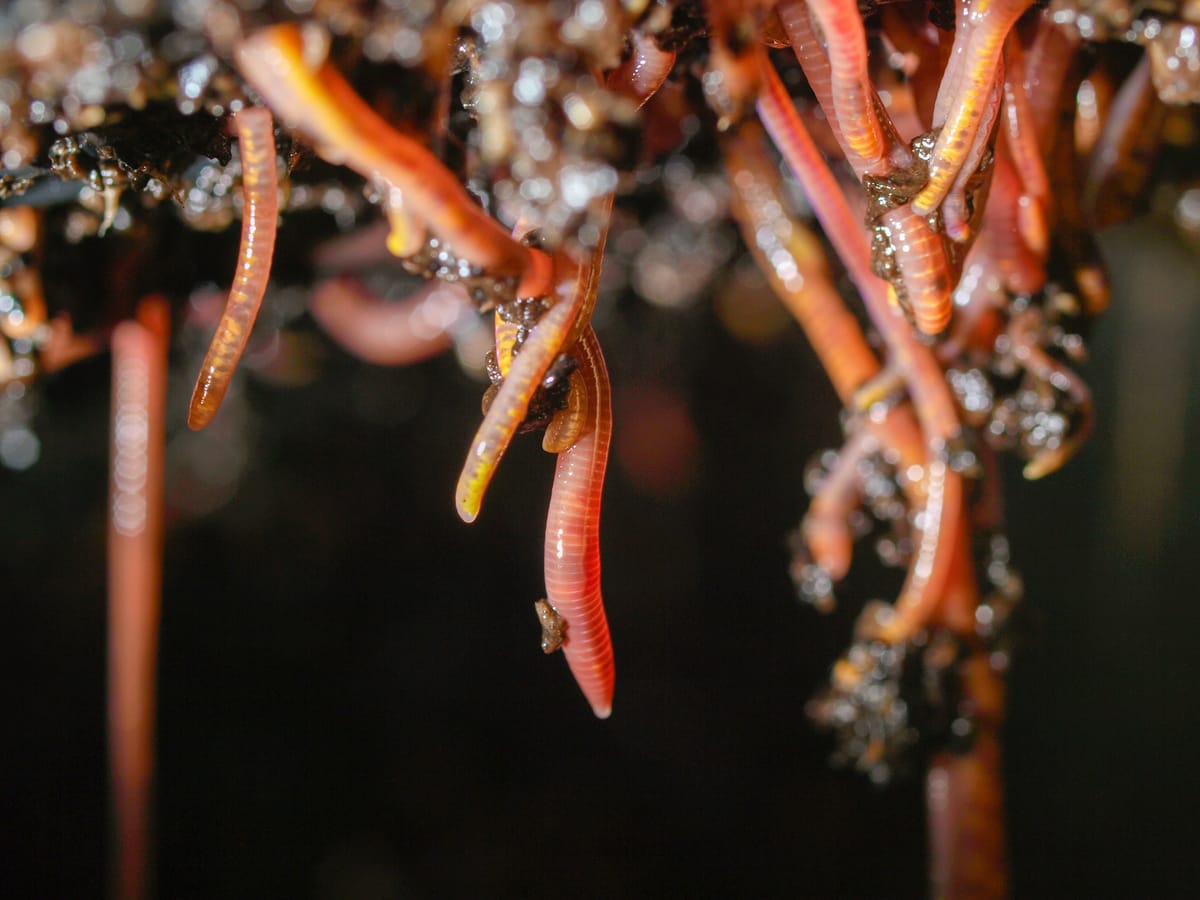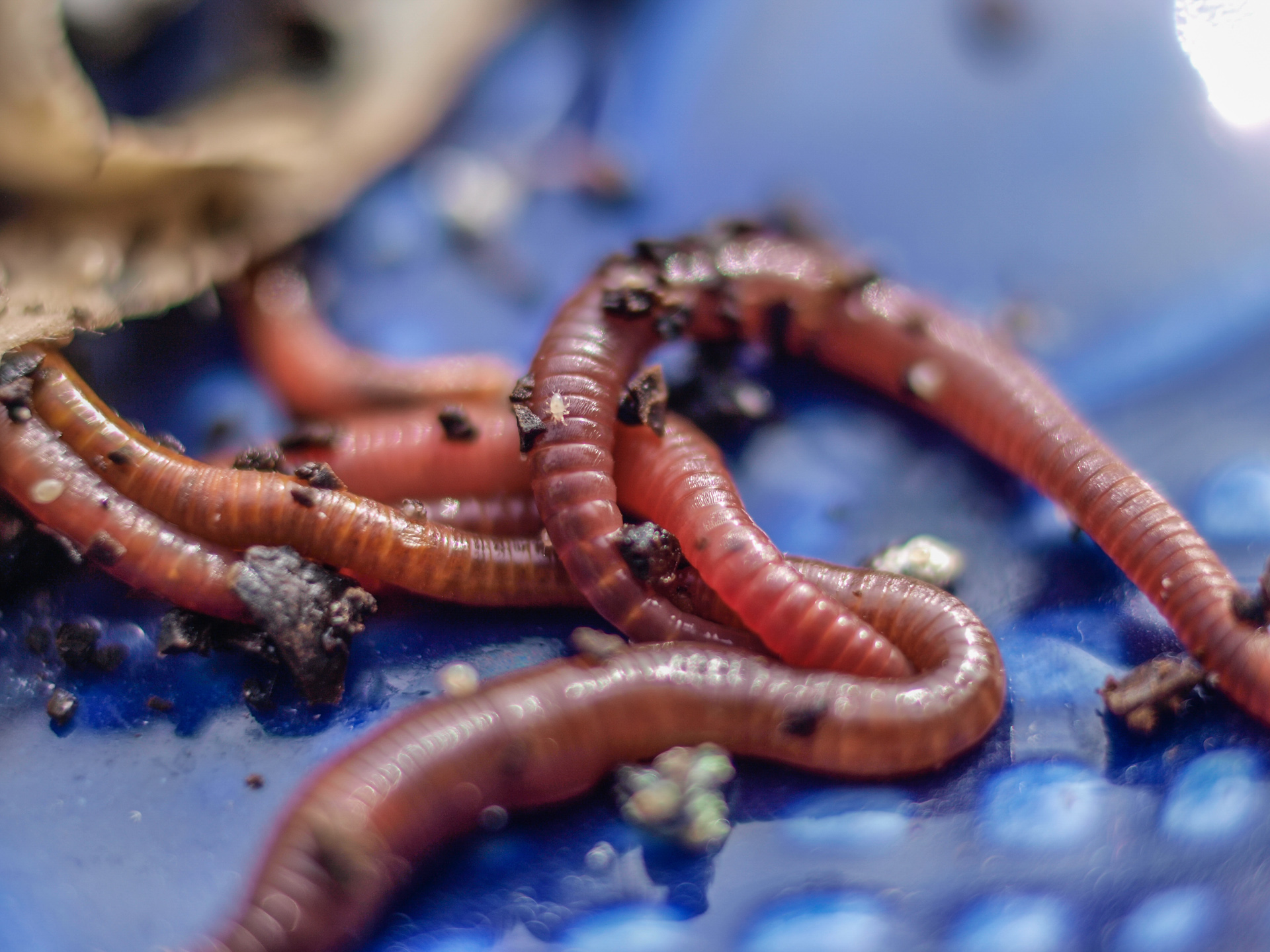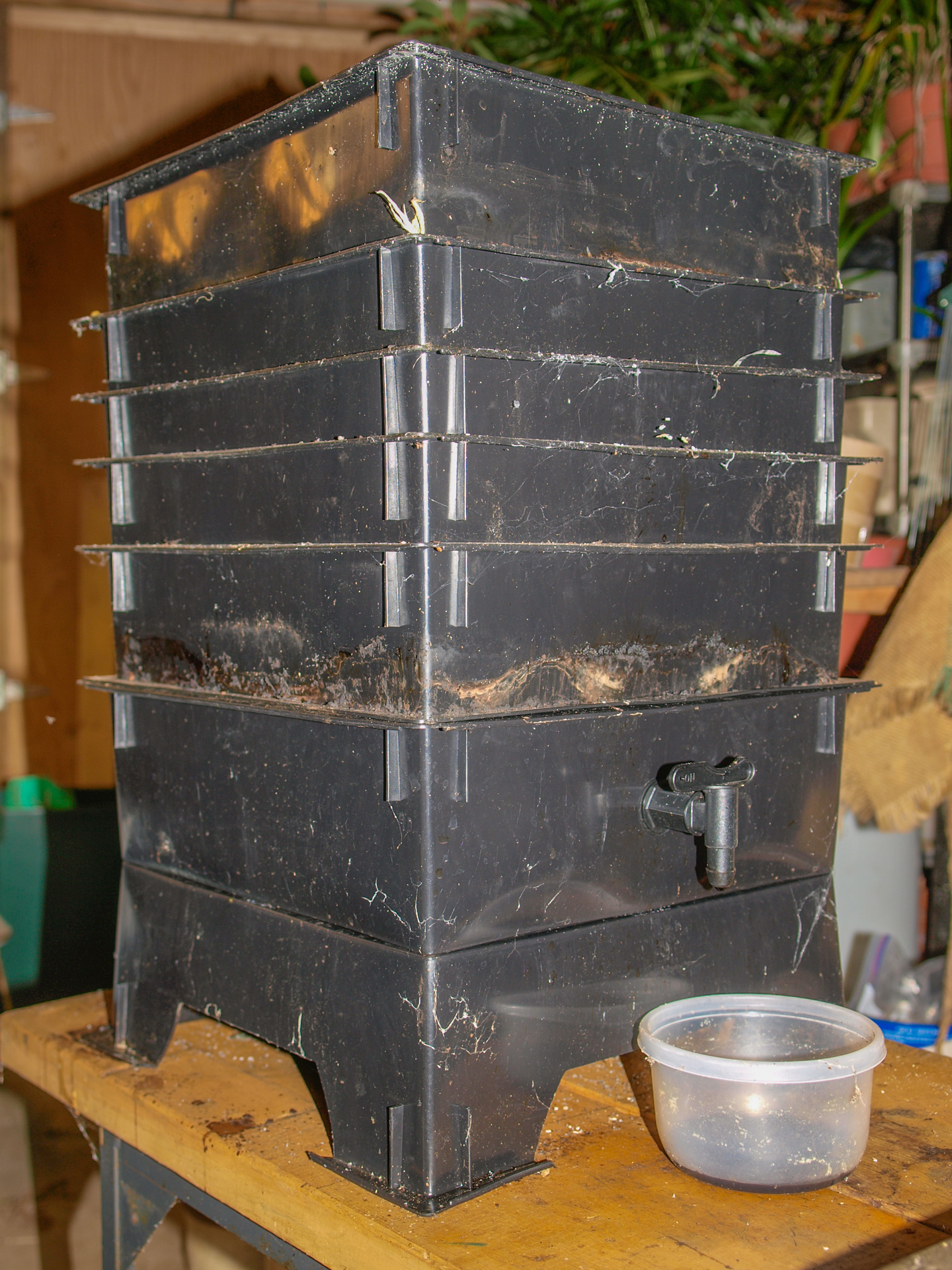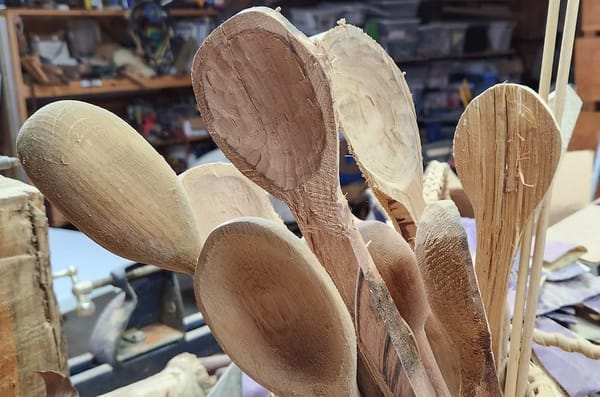Worms in my Basement
I have been raising worms in my basement for almost 30 years, why is that?

I never imagined that one day I would become a worm rancher. I was inspired by a visit to my son's science classroom when I saw a plastic bin full of worms converting food scraps into compost. The worms were red wigglers (Eisenia fetida), a variety that thrives in rotting vegetation, compost and manure. Unlike earthworms they will thrive in captivity with minimum care. The worms eat about half their weight in food a day and produce a manure with the euphemistic name worm castings.
The teacher provided me with a mailing address for the Carter Worm Farm in Plains, Georgia which touted itself as the largest worm farm in the world. I had to learn about keeping worms through experimentation because in 1992 there was no Wikipedia to consult for quick answers.

I used a variety of plastic bins which proved to be heavy and cumbersome. The biggest problem was separating the worms from the compost. One time I had a mass die-off when the bin became too wet and a large number of worms died. Eventually I settled on a commercial product called the Worm Factory.

This unit does a fairly good job separating the worms. The trays are stacked containing compost in various stages of processing. The newest material is always kept in the top tray and the worms migrate from the bottom up through holes in the tray. Eventually the bottom tray is emptied and placed on top (FIFO - First In First Out) and filled with fresh coffee grounds, banana peels, crushed egg shells etc.
Future Plans
I plan to try a different worm enclosure, one which uses a fabric bag as a breeding and feeding area. I plan to write a review once it becomes operational.



